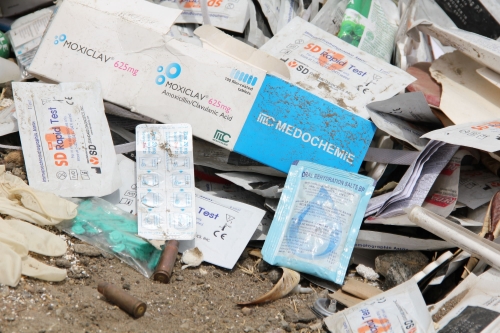AIDS funding is in crisis. Who will step up? →
Scientists say the tools are available to end the AIDS epidemic. But public health interventions are running out of money. And even as officials talk about the approaching end of a pandemic that has killed more than 35 million people, the goal of eradicating AIDS is looking ever further away.
Funding has dropped before, but this time seems different, said Mike Podmore, the director of STOPAIDS. Global fatigue has set in after nearly two decades of funding the AIDS response. Donors are pushing middle-income countries to take on a greater share of funding their HIV/AIDS programs, but health budgets and systems are already stretched. Some costs can be cut by delivering services more efficiently, though that approach is unlikely to bring about the end of AIDS.
All this added up means the indefinite continuation of the world’s deadliest epidemic. Read more.



